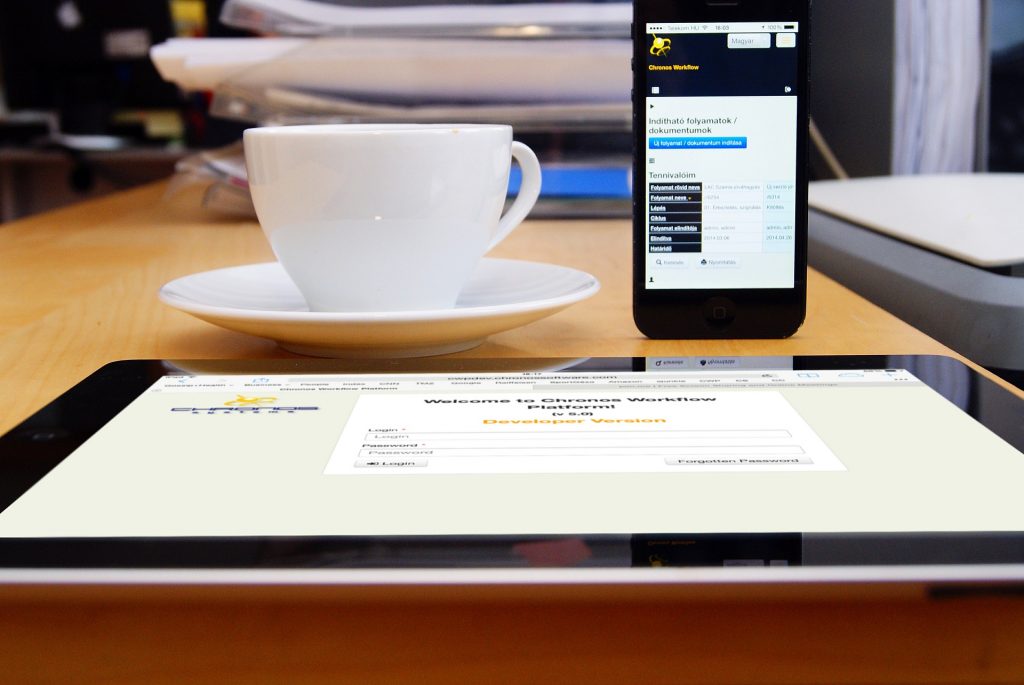However, this is obviously not enough to put people off, as there are plenty of people looking to either start or buy a CPA firm. Why? Because this trend can, fortunately, this trend can be reversed as technology today has advanced so far that your accounting firm could run far more smoothly by getting rid of the stacks of paper.
Most firms are switching to a paperless office, and if you’re reading this, probably you’ve been giving it a thought too. However, if you still have doubts, there are some compelling reasons for your firm to go paperless. Not only would it improve productivity with powerful search function but will also free up to 25% of your firm’s space. Reduced cost is another reason to adopt digital workflow since the cost of papers, ink, and other associated expenses can be significant for small accounting firms.
Is it possible to create a completely paperless office?

Accountants probably cannot go completely paperless since sometimes they need to preserve legal documents or contracts. Some amount of paperwork will always be there be it for partners, clients or suppliers. But they surely can improve the efficiency of the firm by cutting down the amount of paper they use.
Advantages of Creating Paperless Office
- Accessibility: In a paperless accounting world, any document can be searched within seconds through search option, be it on a hard drive or network. You don’t need to hire someone to file important financial documents in cabinets. Cloud technology allows quick and easy storage which is automatically organized, making accounting simple and paperless.
- Enhanced security: An accounting firm handles sensitive financial information making security one of the key factors. Electronic data is more secure as there would be no hard copy to steal in the event of a break-in. In the cloud, you can apply different levels of security to the servers or files. Moreover, owners will have access to the history of users who have accessed the document providing them better control of their documents than ever.
- Inexpensive and easy: Accountants are well aware of the costs involved in maintaining office and those cluttered file cabinets, let alone the space they take up. The savings of going paperless extends beyond the cost of paper, which can be significant for small firms. Web-based applications allow SMBs to communicate with their clients without incurring printing or postage expenses.
- Automatic Backups: For accountants, the data is gold and irreplaceable. If you accidentally throw an important document or paper, it is gone forever. However, apart from the paperless process involves continuous data backup. Data is saved on the cloud by cloud-based accounting providers, eliminating the need for firms to set aside time for managing papers.
- Environmental Friendliness: Accounting firms are considered as watchdog figure among businesses and therefore should set an example by adopting environment-friendly It is estimated that 2,500 trees are cut down every year to make 10 million pages and an employee in US prints about 10,000 pages each year. It is reported that about 85 million tons of paper are wasted in the US each year. Going paperless can greatly reduce the environmental impact.
- Increased Productivity: In accounting sector, “Time is money” –a phrase firms bandy about, but what if most of your time is spent in depositing and listing thousands of files from different accounts. Not to mention the complexity involved in fetching existing data when needed. Paperless documentation expedites processing, reduces the staff required and thus increasing productivity. Cloud allows authorized users to access files, even while working remotely.
- Increased customer satisfaction: Occasionally, every customer has been on the other end getting the dreaded response, “I’ll go through the document and get back to you.” Imagine how happy your time-pressed customers will be after hearing, “Let me get the document and check it for you now.”According to research by AIIM, going paperless provided an average 6.7 times faster customer response time.
Best Practices to Create Paperless Office
These five tech tips would help your accounting firm organize the accounts, receipts and save your documents electronically, helping you cut down paper from your daily routine.

- Scan and file everything that comes your way: You can take the first step towards a paperless office by scanning all the documents that come your way. With numerous apps available, you can convert your smartphone’s camera into a scanner and quickly convert these images to PDFs
- Cloud Apps: Having a paperless office needs more than just scanning documents and forms a way for better management. The number of apps available can help accounting firms cut down on the number of paper documents they use. These applications allow you to share documents or data easily with your clients or business partners.
- Dropbox – to store scanned documents, photos or receipts
- Google mail and chat – to communicate online with the clients or staff members
- Evernote – to take digital notes
- Basecamp – for project management
- Harvest – for simple invoicing
- Get rid of old technology: If your firm is still using Fax machine or notebooks, it’s time for you to get rid of it. Cloud technology provides a host of tools to help eliminate office paper waste. You can also hire a cloud provider which specializes in paperless conversion which would help eliminate your filing cabinets.
- Centralized data storage: You can share the documents with clients or staff members by implementing a cloud-based data storage solution (such as Google Drive, Dropbox, Amazon EC2 or Microsoft SkyDrive). The owner would have access to share permissions to different users.
- Paperless statements and pill paying: Paying bills online would help you save on postage and envelops. Running office finances online would make payments faster and easier to track.
Author Bio:
Nishant Kadian is an editor at Ace Cloud Hosting, a leading provider of QuickBooks Enterprise Hosting. He likes to cover cloud computing and tech trends that influence the accounting and business world. He has been writing about SaaS products, application hosting, and IT security since 2014.














